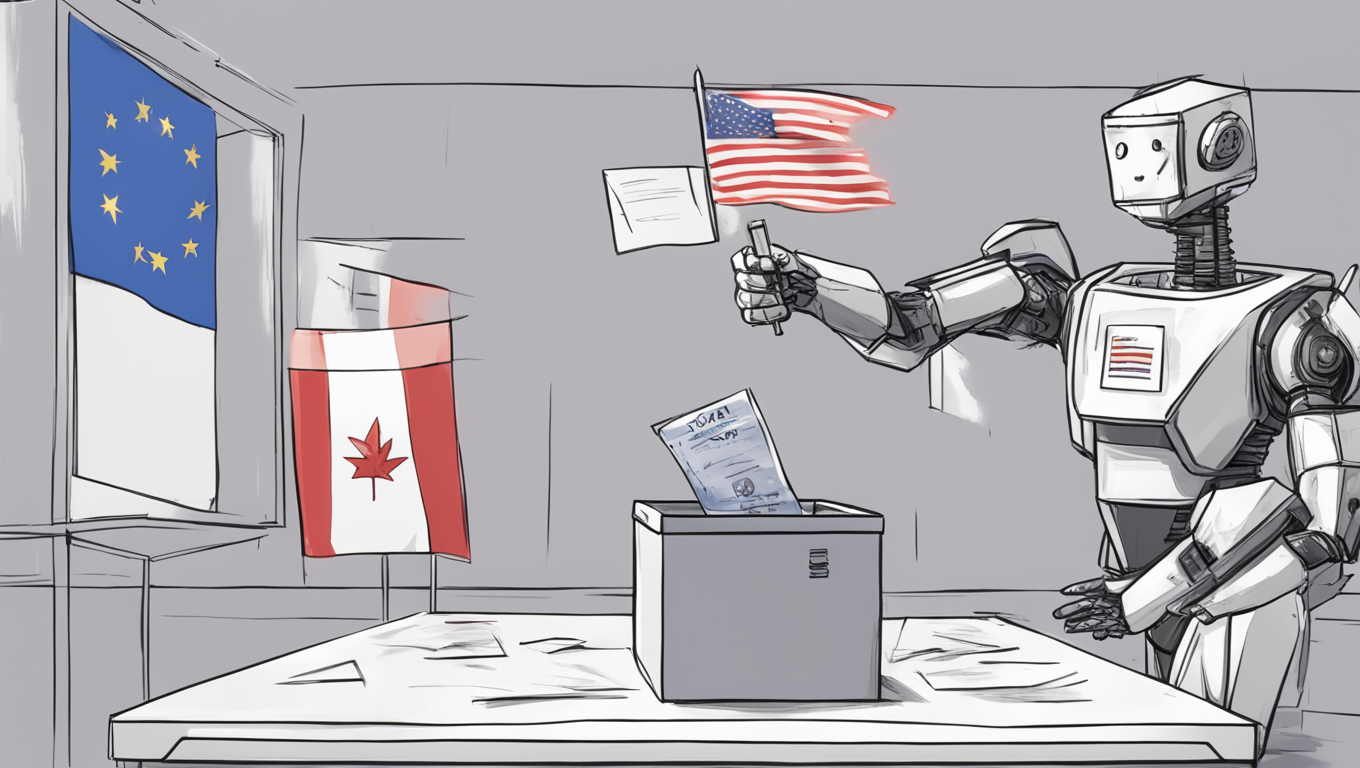Canada’s cybersecurity watchdog, the Communications Security Establishment (CSE), has issued a warning about the potential threat of AI-driven deepfakes undermining trust in democratic processes, particularly in election campaigns. In a recently published report, the CSE stated that the use of AI-generated deepfake images and videos, which can depict events that never occurred, is likely to become more challenging to detect. This poses a significant risk to the public’s trust in online information regarding politicians and elections.
While recognizing the creative benefits of generative AI, the agency emphasizes the potential for disinformation to contaminate the information ecosystem, threatening democratic processes globally. The report predicts that cyber threat actors will increasingly employ generative AI in influence campaigns targeting elections. It also raises concerns about the rising number of cyberattacks worldwide, attributing a significant portion to Russia and China. Additionally, the CSE highlights instances where these countries have gained access to voters' personal information globally. Specifically, it notes pro-Russia state-affiliated cyber actors targeting elections in countries that supported Ukraine. The report even suggests that the Kremlin might focus on the 2023 and 2024 European elections.
Canada itself is not exempt from these risks, as the CSE warns. The country’s support for Ukraine and its membership in NATO and other global organizations makes it a potential target for cyber threat activity. Furthermore, Canadians' strong internet connectivity means they are among the most internet-connected voters globally. The CSE’s report unequivocally states, “Cyber threat activity poses a real and growing threat to Canada’s democratic processes.”
The rise of deepfakes powered by AI technology is a grave concern for the integrity of elections around the world. By leveraging AI algorithms, malicious actors can create convincing fake videos and images that can easily deceive the public. These deepfakes can spread rapidly through social media platforms, impacting the credibility of politicians and the information available to voters.
In response to this growing threat, governments and tech companies have been investing in methods to detect and combat deepfakes. However, as AI algorithms continue to evolve and become more sophisticated, the task of identification becomes increasingly challenging. The CSE report highlights the urgent need for proactive measures to address this issue, emphasizing the importance of protecting the democratic processes that underpin society.
The CSE’s warning serves as a wake-up call for governments, organizations, and individuals alike. It underscores the vulnerability of democratic systems in the face of AI-driven disinformation campaigns. As the 2023 and 2024 European elections approach, countries must remain vigilant in safeguarding the integrity of their electoral processes. Failure to do so could have far-reaching consequences, eroding public trust, and undermining the very foundation of democracy. It is imperative that proactive measures are taken to counter the threat of AI-driven deepfakes and preserve the fundamental principles of democracy.





Use the share button below if you liked it.